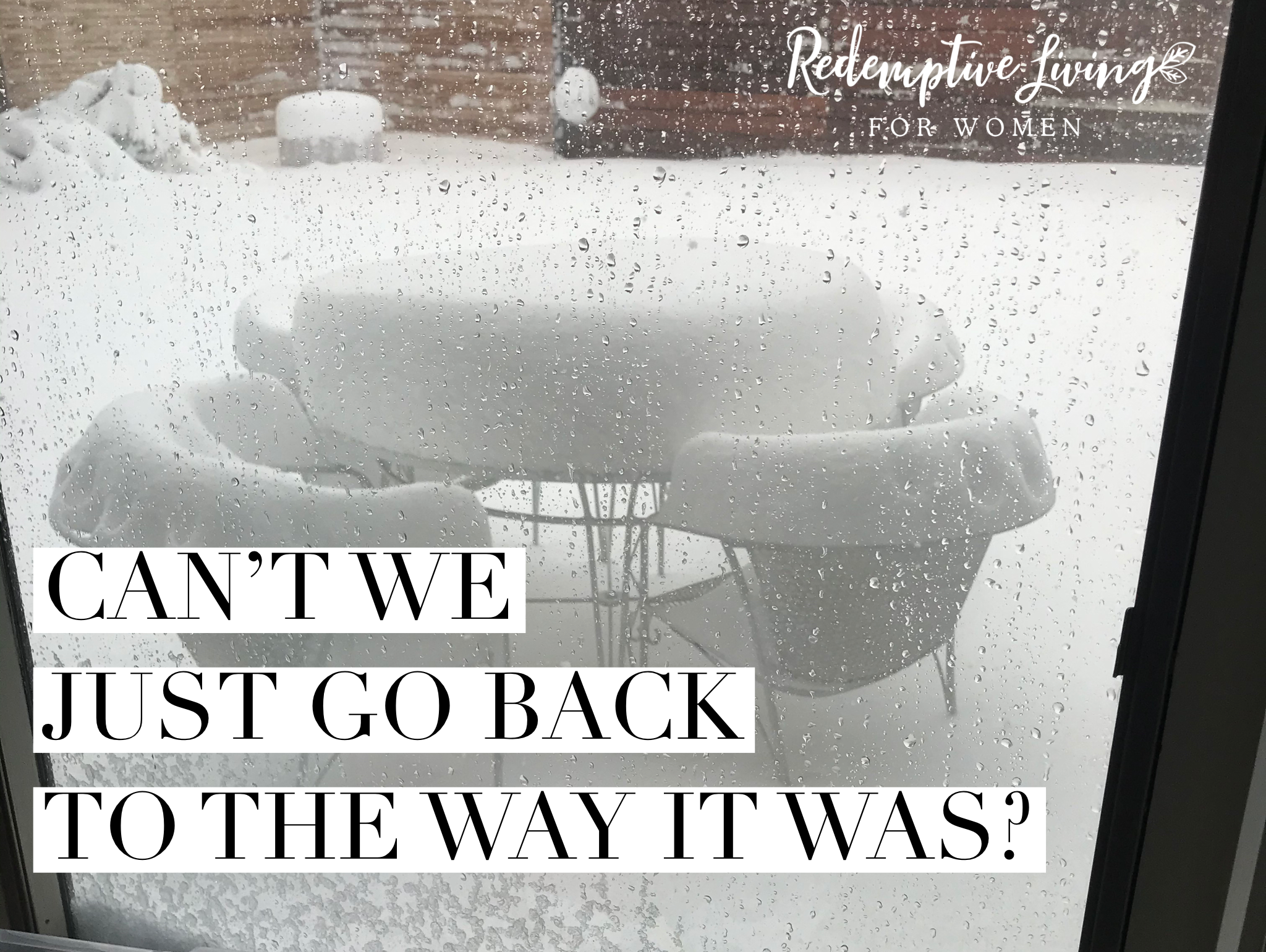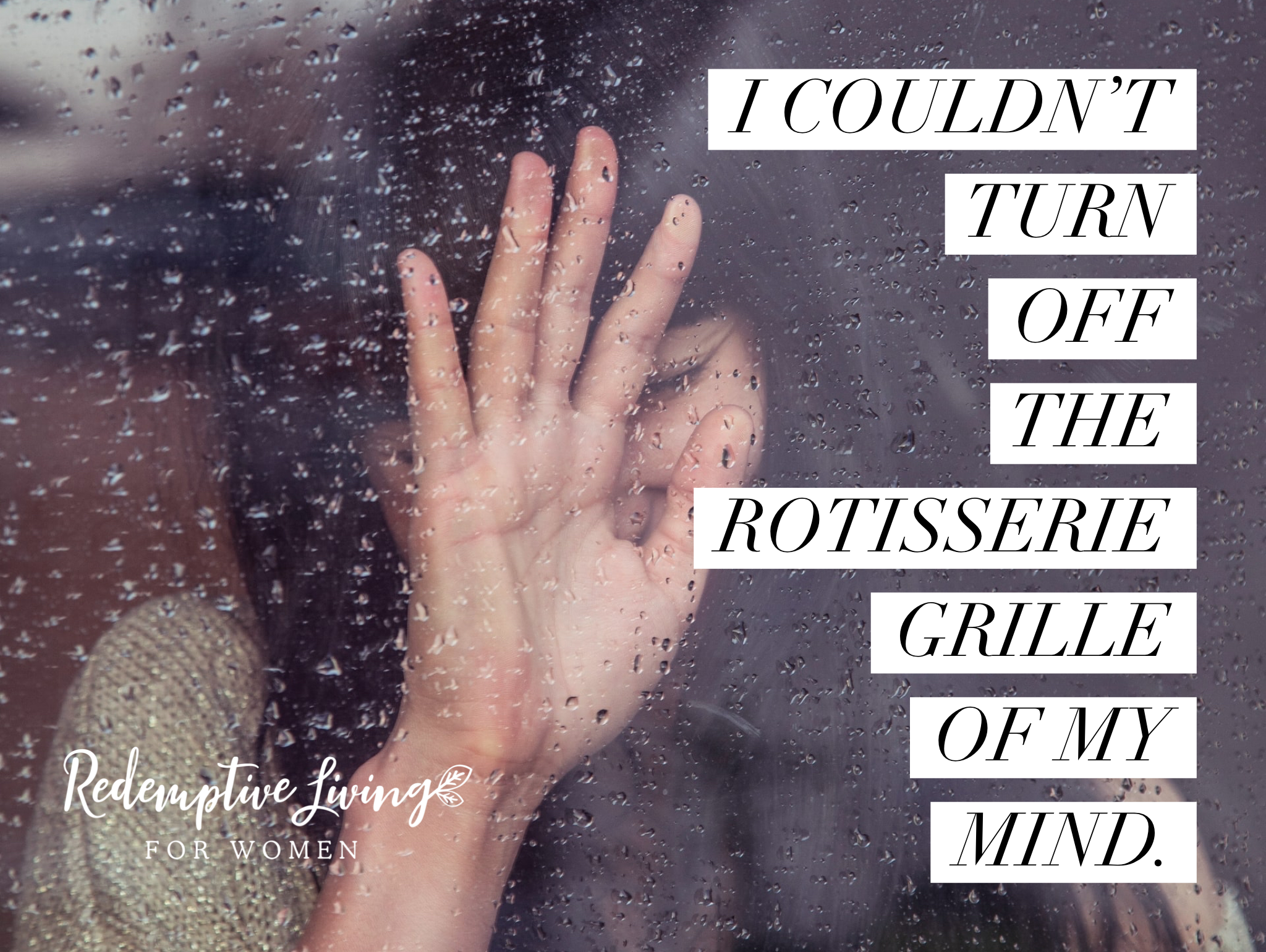Let’s Talk Trauma - Part 2
In the last blog post, you will see that I was pining away for spring. I had even heard birds chirping outside our windows.
Well.
I’m looking out the window to a blanket of white covering the rooftops, cars, trees, ground. We have received a lot of snow these last couple of weeks - so much so that I’m not sure where my chirping birds flew to.
But I want them back.
And this, my friends, is a very loose segue into the topic at hand. Trauma. And the devastating effects it has on our hearts, minds, bodies, souls.
As we sit here, collectively, figuring out what it looks like to heal from the trauma - I know for me, I just wanted to go back to how I functioned before. Without the pain, the overwhelm, the trauma.
While that isn’t possible - the good news is that there is so much hope for us. And God is ready to lavishly pour out blessings to us as we move through the healing journey. But I realize, I am getting way ahead of myself.
Back up the Bus
If you haven’t read the last blog post + the comments, I encourage you to do so. The women were so vulnerable in their responses and there was a rich conversation that unfolded. Go check it out and know that you will walk away seeing that you are not alone.
Identifying How Trauma Has Impacted Us
Picking up where we left off - I think it’s important that we name the impact that trauma has had on our lives. And how it impacts our behaviors. Naming the pain helps validate what we are experiencing. And it also gives us a loose roadmap for seeing if we are moving in the right direction or not as we look for - are these symptoms improving? Or no?
Looking at a list of trauma symptoms has always overwhelmed me so I thought I would start with presenting some of the symptoms that I have experienced that I didn’t even realize initially were trauma:
Early on, thoughts invaded my mental space on an almost constant basis. I was constantly thinking about what happened. It was as if there was a rotisserie grille in my mind that just turned the details of the disclosure and what I had discovered over and over and over. (Specific symptoms: flashbacks, intrusive thoughts, reliving the event.)
Jason would come up behind me and it would scare me. I would jump at the slightest noise or movement. (Specific symptoms: hyper vigilance, hyper arousal, oversensitivity.)
I couldn’t stop moving, couldn’t sit down and relax. I struggled to eat. (Specific symptoms: inability to eat, restlessness, helplessness.)
I started to disconnect from what I felt in my body, I also didn’t even know who I was anymore. (Specific symptom: dissociation.) At its extreme - when we dissociate, we can even forget parts of the disclosure / what we discovered / start to question our reality.
Before you consider how the trauma of betrayal has impacted you, I want to list out the symptoms and group them according to the fight / flight response. In order to do this, let’s talk more about the fight / flight response.
Autonomic Nervous System
I am going to try to make this super simple (but know it’s complex). Our autonomic nervous system is constantly scanning the environment looking for cues: Are we safe? Or are we in danger?
Keep in mind, the autonomic nervous system is regulated by the limbic system and the part of the limbic system primarily responsible for detecting threats and fears is the amygdala. So you might see these parts of the nervous system used interchangeably (autonomic nervous system, limbic system, amygdala) when talking about trauma.
A healthy autonomic nervous system not only accurately assesses the environment for safety and danger but also is flexible and resilient and can move from a state of safety to a state of movement or a state of being still. (Bottom line - the autonomic nervous system is not just responding to danger and threats, it’s also responding to, for instance, going on a run or relaxing and reading a book.)
When we are traumatized, our autonomic nervous system dysregulates and loses its capacity to accurately scan the environment and respond flexibly to cues. In fact, we can get stuck in a state of danger. Everything feels like danger (side note, this is partly why triggers are so challenging and all encompassing early on in recovery.)
When we are stuck in a state of danger - our amygdala are overly activated and our fight / flight response is in hyper-drive.
With that said - here is the {dreaded, for me at least} list of symptoms. I have categorized these into two sections - the symptoms that our bodies exhibit when we are frozen and the symptoms our bodies exhibit when we are in fight or flight. Know that you will have symptoms in both categories, this is just my way of helping make sense of it:
The Symptoms
Emotional / Behavioral Symptoms-
Fight / Flight Symptoms:
flashbacks
restlessness
rage
nightmares
intrusive thoughts
panic attacks
oversensitivity
hyper arousal
hyper vigilance
reliving the event
sleeplessness
anxiety
Freeze Symptoms:
difficulty eating
avoidance
denial
feeling stuck / frozen
helplessness
immobility
dissociation
withdrawing
depression
Physical Symptoms:
digestive disorders
autoimmune disease
chronic fatigue
chronic pain
migraines
(Please note, this list was taken in part from Your Sexually Addicted Spouse, page 6-7, by Barbara Steffens and Marsha Means.)
Your Homework
I want you to look at this list and identify the symptoms you are currently experiencing as well as how it presents itself in your life (as I shared above). Remember - being able to name it validates it. And also, in the course of recovery, it also will help us see: are we improving? Or no?
I would love for you to comment (below) with the symptoms (above) that are most effecting you.
And we will keep this conversation going in future posts - I still want to tackle how trauma can make it hard to detach and set boundaries as well as how it impacts triggers. And finally, we WILL (oh yes we will) look at strategies we can use to help our autonomic nervous system heal.
We really don’t want to go back to the way it was, ladies. The way it was? Well, it was broken. Here’s to wholeness, health and living our best life!
In this with you,
Shelley



